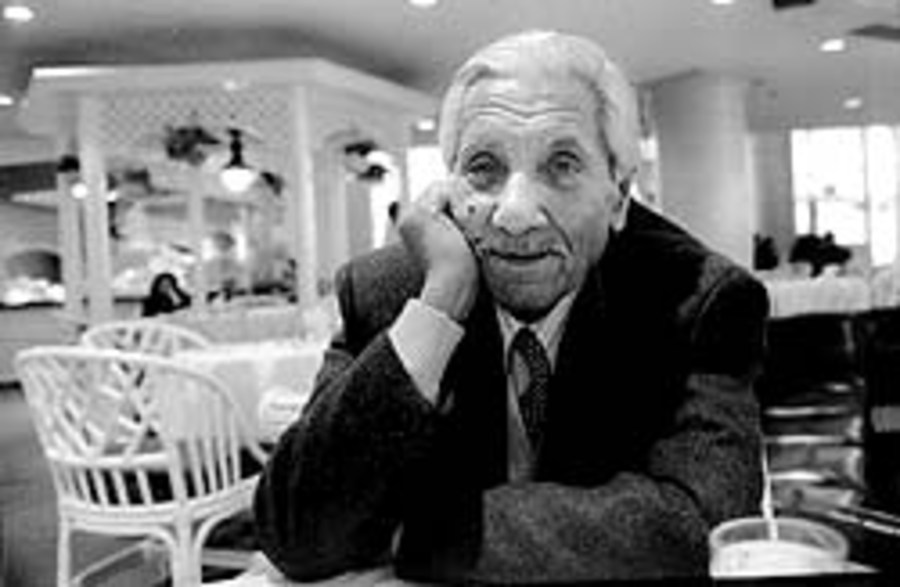Conferences and debates
Index / Activities / Conferences and debates / Al Bayati’s poetry and its influence on the pictorial work by Hanoos
Al Bayati’s poetry and its influence on the pictorial work by Hanoos
October 29, 20147.00 pm
CóRDOBA
Casa Árabe Auditorium (at Calle Samuel de los Santos Gener, 9 – Cordoba)
7.00 pm
Free entrance until the event’s capacity is reached
Conference on the occasion of the exhibition by this Iraqi artist in Cordoba
A professor of Modern and Contemporary Arabic Literature at the Universidad Complutense de Madrid, Federico Arbós, and Iraqi artist Hanoos are giving this conference, in which the poet’s relevance in the painter’s work is explained and analyzed.
The conference will take place before the official opening of the exhibition "Threads of Light", organized by Casa Árabe and the Embassy of the Republic of Iraq in Spain.
Hanoos studied Fine Arts in Iraq and completed his education in Europe, showing an interest in Plato, Aristotle and the Arab philosophers, including mystic Ibn Arabi, and other contemporary thinkers, who have helped him to produce an aesthetic discourse very rich in nuances and of a great intellectual stature.
Abd al-Wahab Al Bayati (1926-1999)
An Iraqi poet and one of the most important contemporary authors, he belonged to the generation of the fifties and was the finest example of what is known as “free verse,” along with the poets Nazik al Malaika and Badr Shakir Al Sayyab.
He was born in Baghdad in 1926. After receiving a degree in Education at the University of Baghdad in 1950 (the same year in which he published his first book of poems, titled “Angels and Devils”), Al Bayati began to work as a teacher and published the cultural journal The New Culture. He left Iraq in 1954, forced to do so because of his political position linked to Communism and against the government. He ended up living in Lebanon, Syria and Egypt. In 1958, with the regime change in Iraq, Al Bayati was hired by his country’s Ministry of Education and later held the position of cultural attaché at Iraq’s embassies in Moscow (1959-1961) and Madrid (1980-1990). In the interim between these two positions, he lived in Cairo, Paris, London and Jeddah. His political position always marked his relationship with the Iraqi authorities. In 1995, four years before his death, Saddam Hussein took away Al Bayati’s citizenship. He spent the final years of his life exiled in Damascus, where he died in August 1999.
Al Bayati’s work clearly reflects the different stages though which he passed throughout his lifelong career, as well as the countries where he lived. In much the same way, he has frequently been characterized as an urban poet, creating his image as a person who attended cultural discussion groups at cafés and other such places in the cities where he lived.
Federico Arbós
Born in February 1946 in Pedro Bernardo ( Avila ), Federico holds a doctorate in Arabic Literature from the Complutense University of Madrid , and works as a retired professor in the Department of Arabic and Islamic Studies at the same university . He began his academic career as an assistant professor of Arabic language in Madrid and Castilla- La Mancha , at the University of Toledo and Complutense. He later became a professor of Arabic Literature at the Autonomous University of Madrid (1983-1989).
Between 1990-1999 , he worked as a professor and taught Arabic literature at the University of Complutense, in which he was a professor of Modern and Contemporary Arabic literature.
Fredrico also worked at the Ministry of Foreign Affairs , he has held the following positions at the ministerial management: Director of the Spanish Cultural Center in Alexandria , Egypt ( 1969-1971), translator and editor of the Arabic and French language in OIL, and President and General Manager of the Middle East ( 1987-1990 ), Director of the Cervantes Institute in Cairo (1993-1997) , Casablanca (2000-2003) and Rabat ( 2007-2012 ).
He has many articles in Spanish and foreign magazines on Arab issues ( contemporary literature , historical and political issues ) . Among his writings published are the poetry of the icon Abdul Wahab al-Bayati; ‘’Study and selection’’ ( Madrid , 1996).
He has translated from Arabic various poetries for Al-Bayati, Adonis, M. Bennis and other contemporary poets, in addition to ‘’Monumental Memories’’ for the fourteenth century traveller from Tangier Ibn Battuta, and ''Through Islam'' (national edition 1981; second edition 1987; revised third edition 2005, re-published edition, 2014).
In 1988, Frederico received the National Award for translation awarded by the Ministry of Culture, for his translation of a book of poems by Syrian Lebanese poet Adonis.

